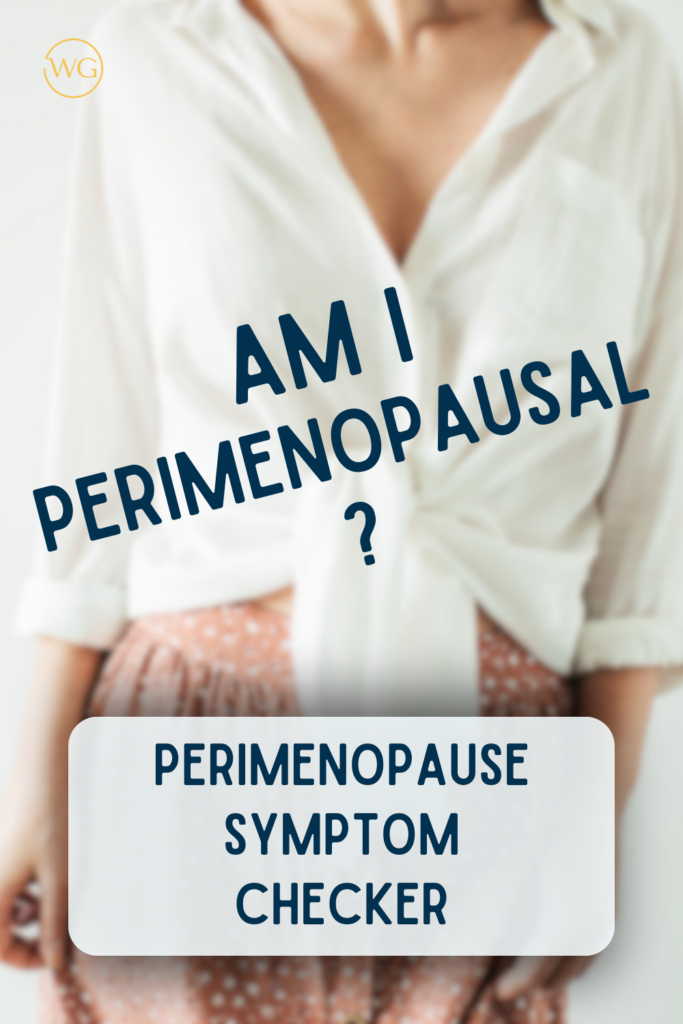What is perimenopause?
Perimenopause is a natural phase in a woman’s life that marks the transition towards menopause. It is often described as the time when the body begins to experience hormonal fluctuations and changes. So, to be able to recognise that it is starting to happen, you need to know the common and less known perimenopause symptoms.
During perimenopause, which typically starts in a woman’s late 30s or early 40s, hormone levels, particularly estrogen and progesterone, fluctuate irregularly. However you could be one in 100 women who’s reached menopause by the age of 40. These hormonal shifts can lead to various physical and emotional symptoms, such as
- hot flashes,
- mood swings,
- irregular periods,
- sleep disturbances, and
- vaginal dryness.
NB Every woman’s perimenopause journey is unique. The duration of this phase can vary from a few months to several years.
Understanding the changes happening during perimenopause can help women navigate this transitional phase with more ease. Remember, you’re not alone in this journey – many women go through perimenopause and there are resources available to support you along the way.
Perimenopause symptoms
Period changes
Experiencing changes in your period can be a significant sign that you may be entering the perimenopause stage of your life. It is important to understand that these changes are completely normal and part of the natural hormonal fluctuations that occur during this transition.
One of the common perimenopause symptoms is irregular periods. Your menstrual cycle may become less predictable, with variations in the length of your cycle and the timing of your periods. You might also notice changes in flow, such as heavier or lighter bleeding than usual.
Libido
Dealing with the changes in sexual desire during perimenopause can be a sensitive and challenging experience for many women. It’s important to acknowledge that a drop in libido is one of the common perimenopause symptoms.
Perimenopause brings about hormonal fluctuations that can impact various aspects of a woman’s wellbeing, including her sexual desire. It’s crucial to approach this topic with compassion and understanding, as each woman’s experience is unique.
While it may be disheartening to notice a decrease in libido, it’s essential to remember that this change is not permanent and there are strategies to help manage it. Open communication with your partner and healthcare provider can provide valuable support and guidance during this time.
Exploring alternative ways of intimacy, such as focusing on emotional connection or trying new activities together, can help maintain closeness even if sexual desire has temporarily decreased.

Bone density and cholesterol levels as perimenopause symptoms
Two common issues that arise during this time are the loss of bone density and changes in cholesterol levels. These changes can have a significant impact on a woman’s overall health and wellbeing.
One of the key factors contributing to the loss of bone density is the decline in estrogen levels. Estrogen plays a crucial role in maintaining strong bones, and as its levels decrease, women become more susceptible to conditions such as osteoporosis. This condition weakens the bones, making them more prone to fractures and breaks.
Similarly, the decline in oestrogen also influences cholesterol levels. Oestrogen has a protective effect on heart health by increasing levels of good cholesterol (HDL) and decreasing levels of bad cholesterol (LDL). As oestrogen decreases during perimenopause, these beneficial effects diminish, potentially increasing the risk of heart disease.
However, there are steps that women can take to mitigate these effects. One effective approach is weight training or resistance exercises. Engaging in regular weight-bearing exercises helps maintain muscle mass and promotes bone health. It also has positive effects on cholesterol levels by improving overall cardiovascular fitness.
Less known perimenopause symptoms
Anxiety
You may be surprised, but anxiety too is one of the perimenopause symptoms. Women may find themselves feeling more anxious than usual, experiencing sleepless nights, and struggling with overthinking.
The hormonal fluctuations that occur during perimenopause can contribute to these feelings of anxiety because they lead to heightened emotions and an increased susceptibility to depressive symptoms.
Finding healthy coping mechanisms such as practicing relaxation techniques, engaging in regular exercise, maintaining a balanced diet, and getting enough restful sleep can help alleviate some of these symptoms.
Gut Health Disbalance
I bet you didn’t expect this find gut health disbalance in our list of perimenopause symptoms. But what you need to know is that gut health is bi directional. This means that the gut affects hormones and hormones affect the gut.
When our hormones start to decline in perimenopause, that can actually slow down our digestion and that’s why we can get bloated, because we haven’t got those hormones that we need to support our digestion.
And then on the other side of the coin, our digestion massively impacts our hormones as well.
Did you know that we have a certain bacteria within our gut that actually help us detox oestrogen metabolites out of the body? If this bacteria is out of balance, those oestrogen metabolites can actually flow back into the body and cause an oestrogen dominance. (Yes this can actually happen even though our oestrogen declines during perimenopause!)
Conclusion
Remember to be kind to yourself as you navigate through this transitional phase. It’s normal to feel overwhelmed at times, but with patience and self-care, you will find ways to manage anxiety and embrace the next chapter of your life. Click here to get my complimentary perimenopause resource guide so you can start with confidence and resilience.